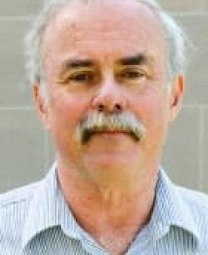报告题目:Breathing Chlorinated Solvents: Reductive Dechlorination byDehalococcoides andDehalobacter
报告人:Prof. Stephen Zinder, Cornell University
时 间:2024年9月24日(周二)上午9:30点
地 点:国际交流中心二楼多功能厅
举办单位:林学院(亚太林学院)
报告人简介:

Stephen Zinder是康奈尔大学微生物系荣休教授,美国科学促进会(AAAS)会士,美国微生物科学院(AAM)院士。海洋生物实验室联合主任。在厌氧微生物环境转化方面开展了开创性研究,主要研究领域为:甲烷生成过程和微生物降解氢代有机物,曾在Nature,Science,Nature Biotechnology等高水平期刊发文,共发表高水平SCI论文120余篇,谷歌学术H指数为72,SCOPUSH指数为54。
报告简介:
Highly chlorinated organic compounds, like the solvents tetrachloroethene (PCE) and trichloroethene (TCE), are resistant to aerobic biodegradation, but anaerobes can reductively remove chlorines from them, using them as electron acceptors for anaerobic respiration. Our laboratory was the first to culture and isolate Dehalococcoides ethenogenes (now mccartyi) the first organism known to completely dechlorinate chlorinated ethenes completely to non-toxic ethene. They are highly specialized for this process, with small genomes (~1.5 Mb) containing numerous reductive dehalogenase (RDase) genes, and play an important role in chloroethene bioremediation. In more recent studies on chlorinated benzenes, we found Dehalobacter strain MCB1, that can completely dechlorinated monochlorobenzene (MCB) to benzene. Benzene is more toxic than chlorobenzenes. Dehalobacter can couple with the organisms in a benzene-utilizing anaerobic consortium to convert MCB to nontoxic CH4and CO2.
附件:海报

